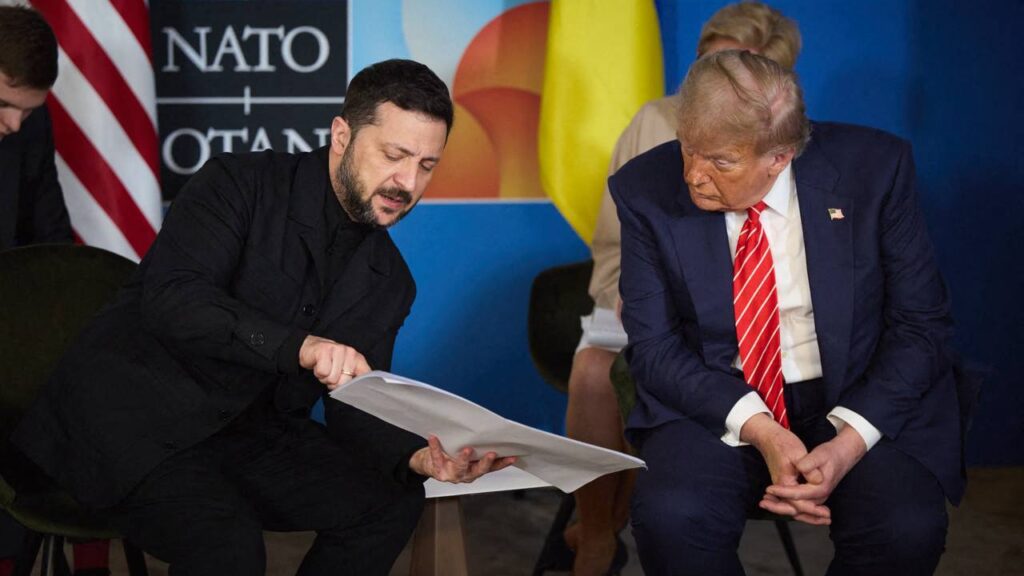After years of heated disputes, Poland has struck a conciliatory tone towards Brussels: Warsaw is willing to amend the judicial system in a way that may be sufficient to get access to the RRF funds. If the European Commission approves the measures, the current government might benefit from it ahead of the elections coming this year. Eurofederalism, however, has already scored a goal.
On Friday, 13 January, the lower house of the Polish Parliament (Sejm) adopted a bill aiming to at least partially remedy the concerns expressed by the European Commission against Poland. The bill is related to the disciplinary chamber (Krajowa Rada Sądownictwa, KRS) operating within the Supreme Court.
According to the draft law, the disciplinary cases of Polish judges would be transferred from the KRS (formerly operating within the Supreme Court), to the Supreme Administrative Court. If the manoeuvre proves to be successful, Poland will pass a crucial ‘milestone’ on the road to the 35.4 billion euros that the country is entitled to within the framework of the Recovery and Resilience Facility (RRF).
Poland’s recovery plan includes 49 reforms and 53 investments. Poland must implement them within a specified time frame, by August 2026 at the latest. While the plan serves economic growth, green transition and job creation at the same time, it also provides specific actions for optimising the Polish justice system.
The latter can also be considered a pivotal point in the series of negotiations between Warsaw and Brussels. The European Commission’s greatest concerns are related to the already mentioned disciplinary chamber, KRS, which performs tasks in the fields of judicial administration. Brussels argues that the judicial independence is currently in danger in Poland. This position has been repeatedly emphasised by the European Commission, which the government in Warsaw evaluated as an interference in Polish constitutional identity and sovereignty, and an unnecessary exercise of pressure.
Gestures and Quasi Guarantees
Poland, however, relented: as a kind of gesture, it announced that it would dissolve the disciplinary council. The bill was submitted to the Sejm in February 2022 and entered into force a couple of months later, in July. So far so good, one could have presumed at that time, supposing that as a result Poland would receive all the green lights from Brussels to access EU funds. In June 2022, the European Commission recommended Poland’s RRP to the Council of the European Union for adoption, and the Council of the European Union also accepted it in the end.
At this point things went awry. The European Commission had a change of heart and deemed the Polish measures insufficient: ‘Poland will have to reflect on the conditions, and if they do not have a sufficient response in the legally binding rules for the Polish judiciary, which will correspond with the milestones, we will not pay the money,’ Vera Jourová, vice-president of the European Commission commented on the developments.
‘Nonetheless, I hope for the best. I believe that the first payment from the RRF will be launched between 2022 and 2023, (and we will be able) to spend them for concrete projects,’ Prime Minister Mateusz Morawiecki responded with optimism.
‘Summertime Sadness’
Then emotions ran high. By August, several prominent politicians of the Polish ruling party (Law and Justice, PiS) expressed their displeasure at the European Commission still being reluctant to make available to Poland the approximately 35 billion euros that were meant to help Poland recover from the damage caused by the COVID-19 pandemic.
PiS General Secretary Krzysztof Sobolewski reminded that Poland has complied with the demand to shut down its disciplinary chamber for judges and warned that if ‘the Commission tries to push us against the wall…we have no choice but to pull out all the weapons in our arsenal and respond…eye for an eye’, including by wielding the right to veto EU policies.
Sobolewski essentially confirmed the position of PiS President Jarosław Kaczyński. ‘If the European Commission does not fulfil its obligations towards Poland then we have no reason to fulfil our obligations towards the EU,’ he declared.
Kaczyński then complained, among other things, that Poland owed Brussels hundreds of millions of euros in fines for not disbanding the disciplinary council according to the ‘Brussels Playbook’. In this regard, Poland filed a lawsuit against the bureaucracy of the European Union in December. The government in Warsaw believes the fine, which has already exceeded 400 million euros, should be withdrawn as Poland had complied with an order by the EU’s top court to disband the so-called disciplinary chamber for judges.
Refurbished Milestones
Although Poland is currently suing the European Union over the fines, recent developments suggest that Warsaw is preparing for further concessions in order to finally receive the money to which both the European Commission and the Council of the European Union say the country is entitled.
The Sejm is currently working on the bill, which is believed to be sufficient for the European Commission. The President of the Senate ordered an extraordinary hearing on this matter. Since the bill has already passed the lower house, the Senate can decide on the issue earlier than the legislative calendar.
According to the United Survey poll, 72.8 per cent of Poles believe that this year’s elections in Poland will be affected in some way by the outcome of the row around the EU funds. Only 18.3 per cent of Polish respondents believe that the dispute between Warsaw and Brussels will not be decisive, and 8.9 per cent of respondents have no opinion on the issue.
‘While, if successful, it can be a step forward in unfreezing funds from Poland’s RRP, it is also a step towards growing the federalisation of the EU. It stems from the Regulation establishing the Recovery and Resilience Facility that all Member States should participate in expenses for the Facility, but the Commission shall decide who is going to receive the funds. That leads to the disciplining of some of the Member States,’ analyst Przemysław Pietrzak from Ordo Iuris commented on developments for Hungarian Conservative.
‘Eurofederalism’ in the Making
Mr Pietrzak is obviously referring to certain provisions of the Regulation on the Recovery and Resilience Instrument and the specifics of the assessment of Member States’ recovery plans. Article 24 of the RRF Regulation (‘Rules on payments, suspension, and termination of agreements regarding financial contributions and loans’) does certainly raise some concerns. This provision in fact establishes the right of the European Commission to evaluate RRPs submitted by member states.
This provision also gives the European Commission room to define so-called ‘milestones’ necessary to pass for the member states along the way to the RRP funds. In the case of Poland, it can be seen what problems it leads to if these milestones are recorded vaguely and carelessly. The European Commission is free to interpret these milestones.
Poland’s RRP, countersigned by the European Commission, indeed sets certain milestones regarding judicial reforms (points F1G, F2G and F3G). F1G refers to a reform strengthening the independence and impartiality of courts, while F2G and F3G concern reforms to remedy the situation of judges affected by the decisions of the Disciplinary Chamber of the Supreme Court in disciplinary cases and judicial immunity cases.
The Sejm certainly passed a law at its sovereign discretion regarding the mentioned milestones. Nevertheless, the RRF Regulation leaves it to a body of unelected politicians, the European Commission, to decide whether the milestones will be implemented or not.
If the current Polish government strikes a deal with Brussels, the ruling party might politically benefit from that ahead of the elections coming up this year. Federalist tendencies, however, have never been so strong in the EU’s history, and the way Poland’s case is being handled by the European Commission does not bode well for the future.








